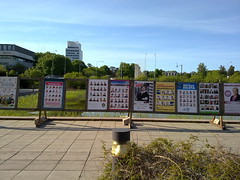Es interesante ver que algunas de las semillas de la presente situación en México fueron plantadas durante el llamado “milagro mexicano” de 1940-1971. Clientelismo, monopolios y falta de valor agregado en las actividades económicas son vicios que se hicieron fuertes durante esa época. Algunos otros se fortalecieron más tarde, especialmente el narcotráfico, el descuido del sistema educativo y el enfoque exclusivo en Estados Unidos.
En las últimas semanas han llamado mi atención una serie de artículos en los que se manifiesta la preocupación de algunos sectores dada la situación actual de México, especialmente en comparación con nuestros vecinos latinoamericanos. La diferencia nace, a mi parecer, de la decidia de la clase política y de la falta de una cultura democrática en la sociedad que complemente nuestro sistema político. Somos buenísimos para quejarnos y para asistir a manifestaciones, pero díganme quién le ha llamado a su diputado o senador para pedirle que rinda cuentas.
Viendo desde fuera el número de oportunidades perdidas en los últimos 10 años por el exceso de politiqueros y la falta de verdaderos estadistas, y el estado de nuestra inversión en el desarrollo de recursos humanos a través de la educación, por desgracia no me sorprende el estado del país.
Por desgracia, como es más fácil armar mitotes que ponerse a trabajar, no soy tan optimista como quisiera. Espero estar equivocado.

